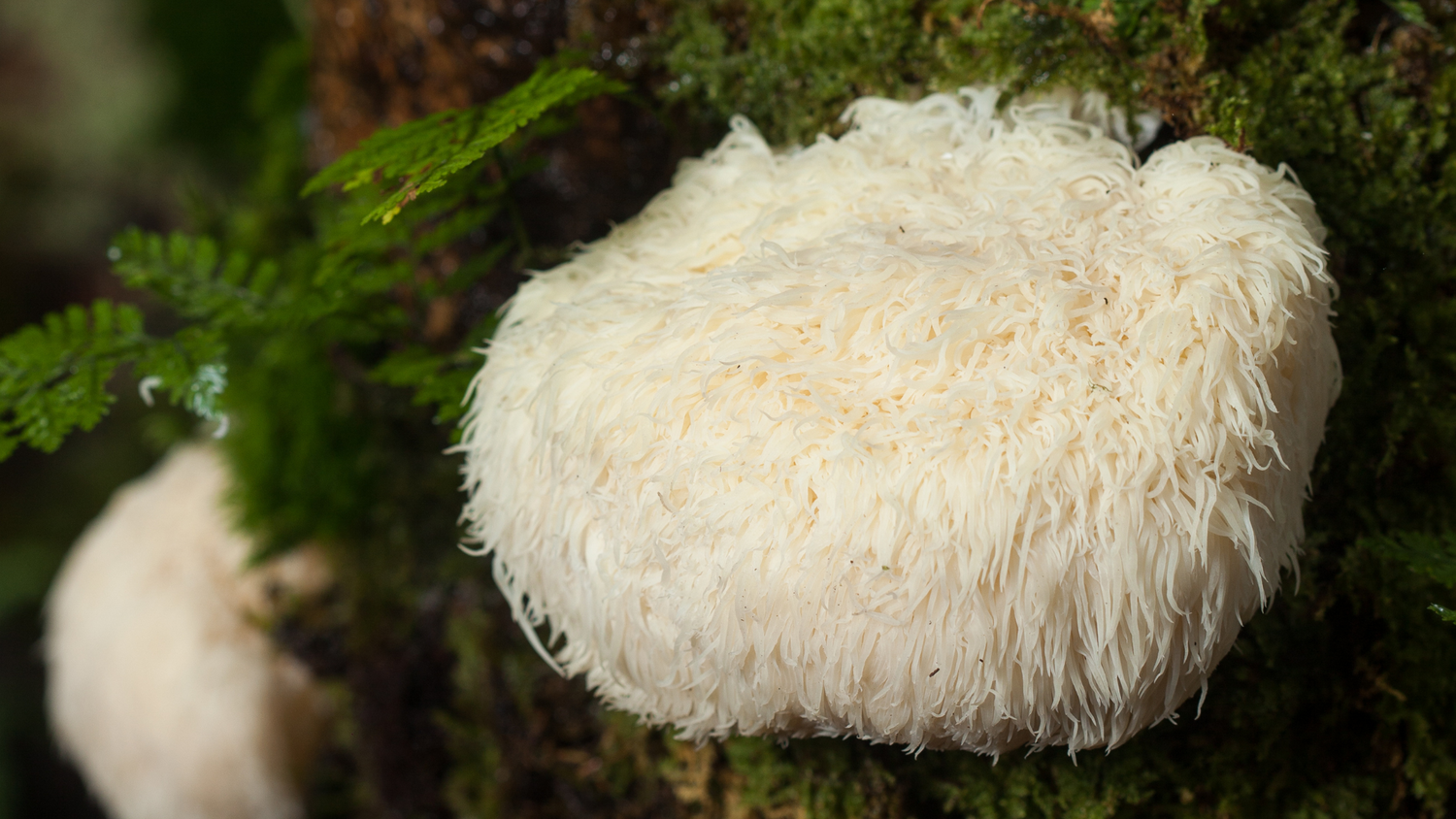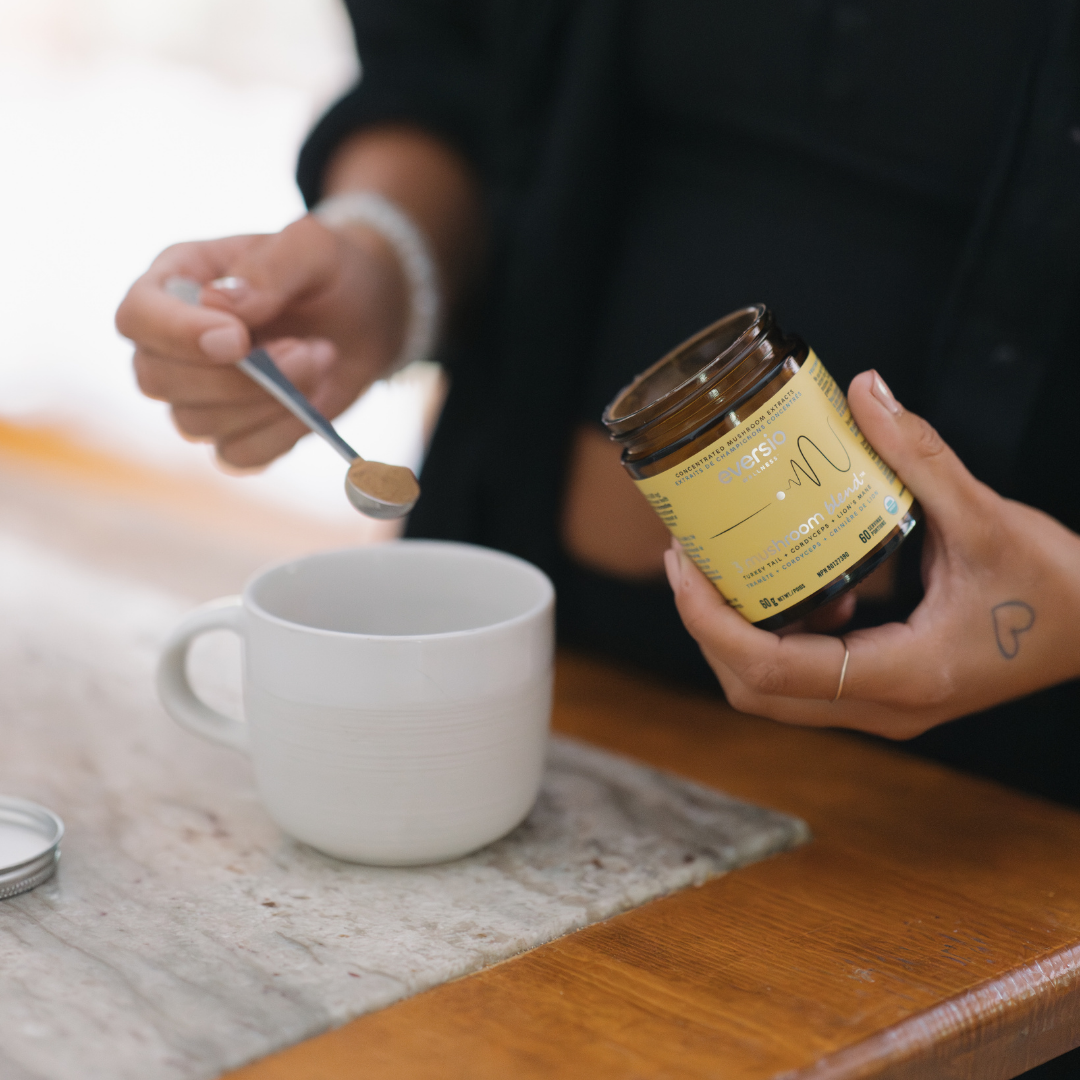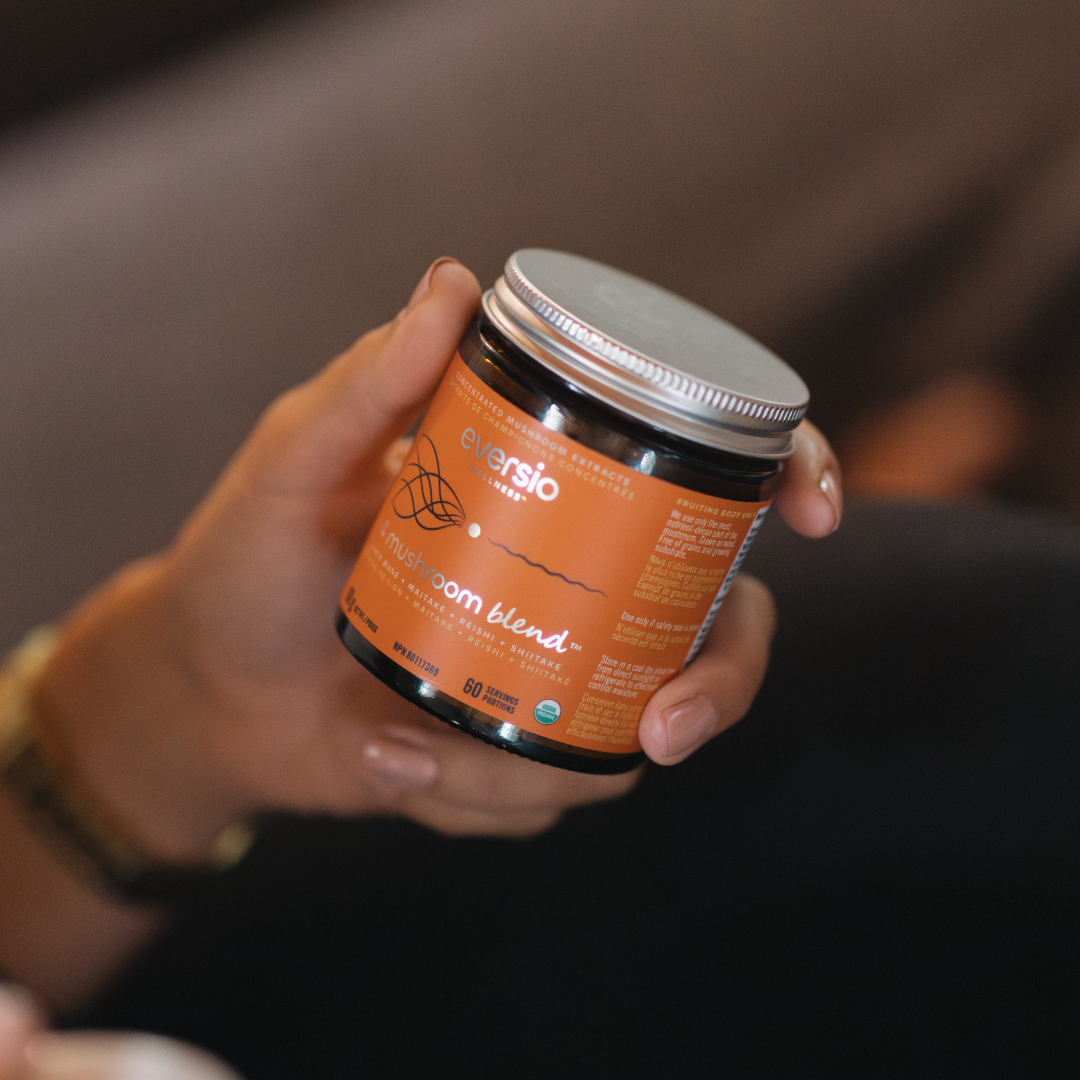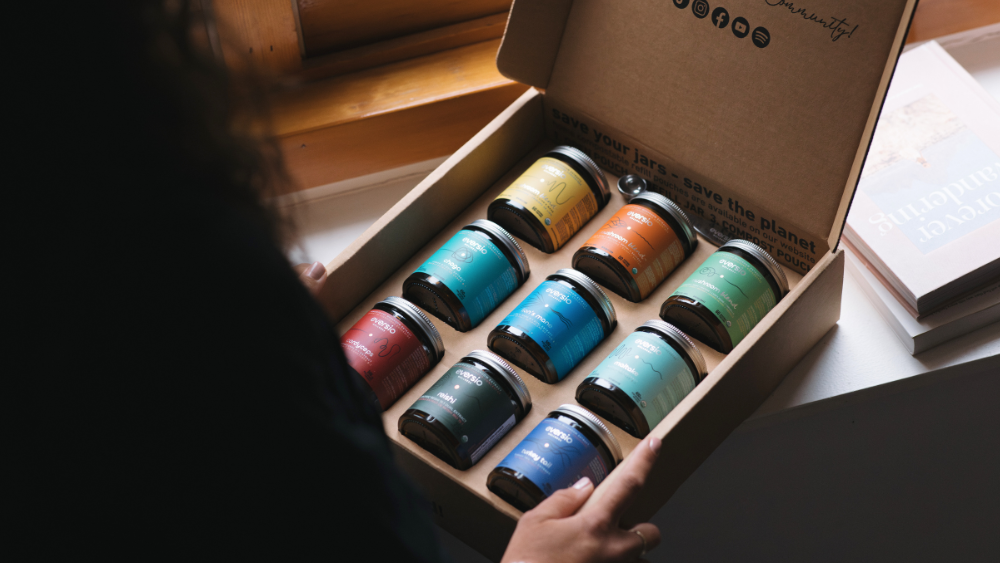Depression and anxiety are the most common mental illnesses worldwide and the current therapies for these conditions include things like antidepressant or anxiolytic medications, counselling, and behavioural therapy. Without a doubt these treatments have done a lot to improve the lives of people with these disorders. However, we also know that antidepressant drugs can sometimes be associated with adverse effects, which has prompted the need for alternative or complimentary treatment options and that’s where mushrooms come in! They have antioxidant, anti-neuroinflammatory and neuroprotective effects which can have a positive effect on the brain. Our top 3 functional mushroom choices that could help aid in the treatment of anxiety and depression are Lion’s Mane, Reishi, and Cordyceps.
Our number one pick for brain health is Lion’s Mane. This beautiful, shaggy looking mushroom has numerous health benefits including antioxidative, antidiabetic, anticancer, anti-inflammatory, antimicrobial, antihyperglycemic, and hypolipidemic effects, and the list really goes on and on. The bioactive compounds extracted from this mushroom have been found to promote the expression of neurotrophic factors that are known to enhance the growth of nerves in our brain, which can contribute to antidepressant-like effects. In fact, one study showed that after 4 weeks of supplementation with Lion’s Mane, anxiety and depression scores reduced from baseline levels in those who consumed the mushroom. [2] Alternate studies also showed that it helped improve sleep disorders possibly through its ability to increase BDNF in the brain. [3] The BDNF gene provides instructions for making a protein found in the brain and spinal cord called brain-derived neurotrophic factor. This protein promotes the survival of nerve cells (neurons) by playing a role in the growth, maturation (differentiation), and maintenance of these cells.
My number two mushroom for the mind is Reishi; one of the most popular functional mushrooms in the world. What you might not know is that Reishi is an adaptogen, meaning it helps people adapt to stress by modulating the stress response via the HPA axis. This is an interaction between the hypothalamus, pituitary gland, and adrenal glands. The hypothalamus and the pituitary gland are located just above the brainstem, while the adrenal glands are found on top of the kidneys. Reishi works on this system by helping to improve the function of our adrenal glands which secrete stress hormones, like adrenaline, into the body. [4,5]
Mushroom number three to consider for these conditions is Cordyceps. The research is preliminary in this area but in one trial patients with chronic fatigue syndrome and depression were given an extract of Cordyceps and it was found to have significant antidepressant-like activity in that patient population. Researchers say that Cordyceps has effects on something called the ROCK2 pathway which regulates stress signals on a cellular level. ROCK2 is a major regulator of axonal degeneration, neuronal death and axonal regeneration in the central nervous system. [6,7,8]
Much is still to be uncovered, so stay tuned to learn more about what Cordyceps, Lion’s Mane and Reishi can do for mental health as researchers dive further into the fascinating world of mushroom wellness.
References:
[1] Lew SY, Teoh SL, Lim SH, Lim LW, Wong KH. Discovering the Potentials of Medicinal Mushrooms in Combating Depression - A Review. Mini Rev Med Chem. 2020;20(15):1518-1531. doi:10.2174/1389557520666200526125534
[2] Nagano M, Shimizu K, Kondo R, et al. Reduction of depression and anxiety by 4 weeks Hericium erinaceus intake. Biomed Res. 2010;31(4):231-237. doi:10.2220/biomedres.31.231
[3] Vigna L, Morelli F, Agnelli GM, et al. Hericium erinaceus Improves Mood and Sleep Disorders in Patients Affected by Overweight or Obesity: Could Circulating Pro-BDNF and BDNF Be Potential Biomarkers?. Evid Based Complement Alternat Med. 2019;2019:7861297. Published 2019 Apr 18. doi:10.1155/2019/7861297
[4] Socala K, Nieoczym D, Grzywnowicz K, Stefaniuk D, Wlaz P. Evaluation of Anticonvulsant, Antidepressant-, and Anxiolytic-like Effects of an Aqueous Extract from Cultured Mycelia of the Lingzhi or Reishi Medicinal Mushroom Ganoderma lucidum (Higher Basidiomycetes) in Mice. Int J Med Mushrooms. 2015;17(3):209-218. doi:10.1615/intjmedmushrooms.v17.i3.10
[5] Pazzi F, Adsuar JC, Domínguez-Muñoz FJ, García-Gordillo MA, Gusi N, Collado-Mateo D. Ganoderma lucidum Effects on Mood and Health-Related Quality of Life in Women with Fibromyalgia. Healthcare (Basel). 2020;8(4):520. Published 2020 Nov 30. doi:10.3390/healthcare8040520
[6] Lin B, Li S. Cordyceps as an Herbal Drug. In: Benzie IFF, Wachtel-Galor S, editors. Herbal Medicine: Biomolecular and Clinical Aspects. 2nd edition. Boca Raton (FL): CRC Press/Taylor & Francis; 2011. Chapter 5. Available from: https://www.ncbi.nlm.nih.gov/books/NBK92758/
[7] Lin YE, Chen YC, Lu KH, et al. Antidepressant-like effects of water extract of Cordyceps militaris (Linn.) Link by modulation of ROCK2/PTEN/Akt signaling in an unpredictable chronic mild stress-induced animal model. J Ethnopharmacol. 2021;276:114194. doi:10.1016/j.jep.2021.114194
[8] Huang HS, Wu HY, Chang WT, et al. The Antidepressive and Anxiolytic Effects of Formula Consisted of Poria cocos and Cordyceps militaris Waster Medium Extract in Unpredictable Chronic Mild Stress Animal Model. Curr Dev Nutr. 2020;4(Suppl 2):1212. Published 2020 May 29. doi:10.1093/cdn/nzaa057_028




















Leave a comment
All comments are moderated before being published.
This site is protected by hCaptcha and the hCaptcha Privacy Policy and Terms of Service apply.